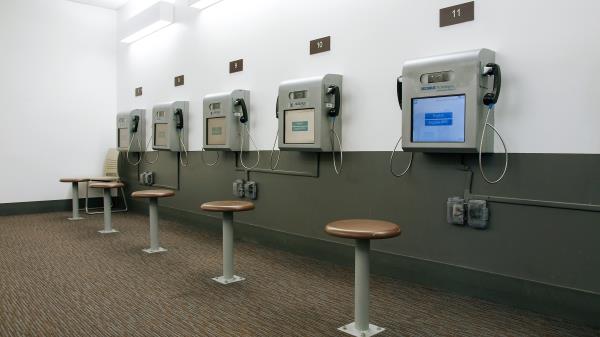latest
AG Healey, Mass DOC, Sheriffs issue warning for scam involving family, friends, of the incarcerated

BOSTON – Attorney General Maura Healey is partnering with the Massachusetts Department of Correction, Prisoners’ Legal Services, and the Massachusetts Sheriffs’ Association to advise residents with incarcerated loved ones to be wary of scams that offer to make or improve connections between those in correctional facilities and their friends and families for a fee.
According to Healey, these scams target the families and friends of people who are currently in jails, Houses of Correction, and state prisons, offering deceptive or fake services that are often advertised online, over social media, and in print media. In some cases, scammers purportedly offer supplemental calling plans, including false promises of “unlimited minutes,” to connect with incarcerated people. However, Massachusetts does not currently offer unlimited calling plans in any jail, House of Correction, or prison. Ultimately, these scams fail to provide promised services, even after taking hundreds of dollars from consumers.
“Scammers will use any opportunity to seek financial gain, including taking advantage of family and friends looking to connect with their incarcerated loved ones,” said AG Healey. “We are working with community advocates and our partners in law enforcement to ensure our residents know how to protect themselves from fraud and deceptive services and that they can report any instances of these scams to my office. It is important that incarcerated individuals are able to connect with the people closest to them without their loved ones becoming victims of fraud.”
“The Sheriffs stand united that one of our highest priorities is keeping incarcerated individuals connected to family members, friends and outside support systems,” said Suffolk County Sheriff and MSA President Steven W. Tompkins. “We want to warn citizens that these are most definitely scams and urge them to take the proper precautions. Taking advantage of people who are already dealing with the stress and emotional toll of having a loved one who is incarcerated is especially repugnant. Protecting our incarcerated individuals and their families from those who would prey on them must remain a top priority.”
“The Department of Correction recognizes the importance of connected relationships of family and friends with their loved ones in our custody,” said the Department of Correction’s Commissioner Carol Mici. “This collaboration with the Attorney General’s office will help to ensure this connection continues while thwarting opportunities for fraud.”
“It is too often the case that families who are already financially burdened and disproportionately people of color are also preyed upon by people seeking to take advantage of the painful experience of being separated from a loved one who is incarcerated,” said Prisoners’ Legal Services Executive Director Elizabeth Matos. “We appreciate the Attorney General’s efforts to ensure that families and communities are not being scammed in this way.”
The AG’s Office, DOC, PLS, and MSA are encouraging residents to take the following steps to protect themselves from fraud and targeted scams:
-Be cautious before posting about incarcerated loved ones on social media, as scammers may try scanning social media activity looking for targets;
-Before signing up for a service, check the business’ website to make sure they offer reputable and legitimate services, and see if they have negative reviews;
-Confirm that you can contact the business/organization via phone, email, live chat, or through their website;
-Look out for all fees that will apply and check the business’ refund policy;
-Avoid offers that come from social media and, in particular, from questionable businesses or organizations that operate solely on Facebook or other social media websites;
-Avoid unsolicited offers from sources you don’t trust or know, including texts and phone calls unless you can confirm that the product or service is legitimate;
-If you decide to make a purchase, pay with a credit card, PayPal or other method that offers purchase protections
Healey says that the Federal Trade Commission has taken recent action against these scams, stopping the operators of a scheme that preyed on families and friends of incarcerated individuals who rely on phone calls to stay in touch with their incarcerated loved ones—particularly during the COVID-19 pandemic when in-person visitations were suspended. A settlement was also reached by the FTC and the Florida Attorney General’s Office with a company that scammed prisoners and their families by charging them for magazine subscriptions that either showed up late or not at all.
Any consumers who feel they may have been scammed by these deceptive practices are encouraged to file a complaint online with the Attorney General’s Office.







You must be logged in to post a comment Login